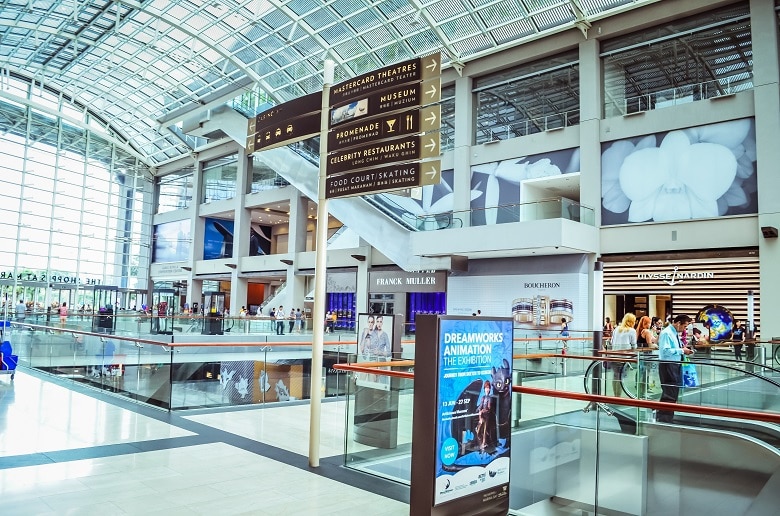Can you imagine the postcovid shopping center?
Shopping centers begin to prepare for their return to activity, once the risk of contagion by coronavirus decreases. In this context, the real estate consultant Knight Frank has designed a protocol to adapt these spaces to the new situation, guaranteeing that the new customer journey of the clients is carried out with all the necessary safety and hygiene measures and provides all the necessary comfort to clients. , workers and retailers.
“It is still too early to know what changes will be permanent and which will be temporary, and these will depend on the decisions of the administrations, but in any case the fundamental objective will be to transmit the greatest confidence to the consumer and to all the links involved (suppliers, retailers, workers) ”, Comments Knight Frank Property Retail Manager, María Martínez.
This protocol at shopping center is based on three main blocks: sanitary and security measures, which restore confidence and enhance the return to shopping centers as safe spaces; digitization; and corporate social responsibility.
Knight Frank recommends optimizing queue management, setting exclusive inbound accesses separate from outbound accesses to avoid crossings between clients.
In the first section, the real estate’s proposal recalls that social distancing is one of the key measures that this new reality implies, and for this, shopping centers must reorder their spaces.
In this sense, María Martínez recommends optimizing queue management, establishing exclusive entrance entrances separate from exit entrances to avoid crossing between clients; implement preferential spaces for the elderly, families, disabled people, health personnel, etc .; intensify signage; and the use and promotion of outdoor spaces are just some of the aspects that must be taken into account.
Other measures contemplated in this protocol consist of controlling gauging through apps, websites, digital elements, etc. to communicate the data and transmit confidence to the client, as well as to intensify the signaling and information, to make the physical measures implemented more visible to the consumer, which give them comfort and encourage their return.
Likewise, it also recommends the incorporation of sanitation and cleaning systems, with hydroalcoholic solution gels using non-contact dispensers, disinfecting foot mats, surgical masks, disposable gloves, ozonation systems, etc.
The consultancy is committed to controlling gauging through apps, websites, digital elements, etc. to communicate the data and transmit trust to the client
In this sense, the directive also bets on reinforcing the renewal and purification of air. “Our center has always been people and now more than ever, our objective will be to guarantee optimal health conditions in closed spaces, improving the quality of life for all visitors,” remarks María Martínez.
In addition, the consultant also advises managing the food court areas, to guarantee the separation between tables and the specific measures that this sector has to implement, while remembering that all those public services – such as sources, service areas, ticket offices – should be limited. and slogans, etc.-, that imply contact.
Added to this is the avoidance of the use of closed spaces, such as elevators, the use of escalators and ramps, where cleaning will be extreme or automatic cleaning systems will be used. It also proposes a staggered access for both workers and carriers, ensuring compliance with all safety and hygiene measures.
The protocol for shopping center is designed by Knight Frank also refers to the adoption of a series of measures aimed at reinforcing digitization. “We will have to promote online communication, both with operators and with customers, and show even more closeness,” says María Martínez, who recalls that the confinement has brought telematic purchases closer to audiences who have not used this channel until now.
Along these lines, the board advocates developing the online business by helping small and medium-sized operators to promote it.
Likewise, the consultancy is committed to promoting contactless transactions to avoid physical contact and minimize risk as much as possible, as well as communication in real time on supports and digital media of the capacity centers, hours, off-peak hours, etc. .
Finally, the document mentions the change in mentality that shopping centers must face regarding corporate social responsibility. “Many groups are going to be especially affected by this crisis,” acknowledges María Martínez, who maintains that these spaces should promote their CSR strategy to become agents of change.








